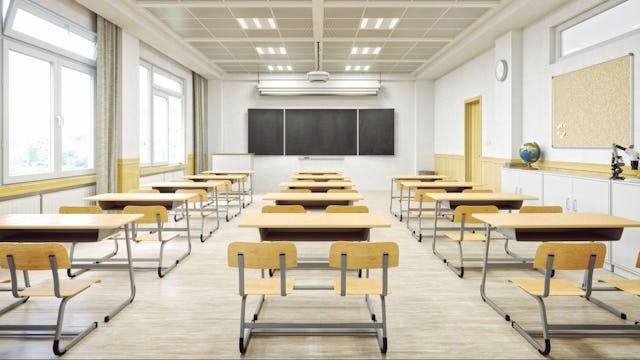A Family's Income Affects Kids' Success More Than Private School

Private school only helps if a family’s income is high
Simply attending a private school will not guarantee success for students who come from families who make less money, according to new research from scholars at the University of Virginia. The study, which will be published in the journal Educational Researcher, shows that merely switching kids from public to private school doesn’t guarantee higher SAT scores or even better education.
“If you want to predict children’s outcomes — achievement test scores, the things we care about socially — in high school, the best thing that you can use to predict that is going to be family income,” Robert Pianta told WBUR. In addition to being one of the authors of the study, Pianta is the dean of the Curry School of Education at the University of Virginia. “Regardless of what high school you go to, the best predictor is going to be family background. And in this case, it’s family background before the child even goes to school in kindergarten.”
The study showed that the advantages a private school might offer a student go away when you consider socioeconomic factors. “We look at these kids when we assess them in ninth grade, and if you just simply look at private school versus public school you see huge benefits to being in private school,” Pianta explained. “And then as soon as you put in family income, those differences disappear — and they never reappear again, no matter how many other variables that you put in.”
As a poor kid who went to private school (thanks to a scholarship), I can attest that my parents often couldn’t afford all of the other extra educational enrichments (tutoring, lessons, classes, and additional stimulation and resources) that the other students’ parents could. According to Pianta, the ability to afford these extras are what really have a determining factor in a child’s success. He explained it this way: “It’s what’s happening in kids’ families and the kinds of conditions that they’re able to purchase for their kids and the circumstances that they’re able to provide for their kids over the long haul that really matter in adding up to the kinds of [benefits] that we assessed in ninth grade.”
Since getting your kid into a private school isn’t enough to ensure success, Pianta had some tips. “I think the parents who are really concerned about the schools that their kids are in, the best thing that they can do is get as involved as they possibly can be in the governance of that school and to use the mechanisms that are available to hold those public schools accountable,” he said. “There aren’t enough good schools for kids — whether those are public schools or private schools or charter schools. And we need parents to advocate for better schools.” He added: “We have lots of evidence to suggest that when you improve schools — whether it’s public schools or private schools or charter schools — you do improve the outcomes for kids, and so focusing on policies that improve schools are clearly the pathway to creating better achievement outcomes for kids, particularly kids from less advantaged households.”
For this particular study, researchers worked with about 1,300 students born in 1991 in 10 different locations in North America. “We followed them all the way through ninth grade in high school, and during the course of that study, we tracked the kinds of schools that they were in, we asked a lot of questions of the kids and the parents, and in the high school years, we assessed the children on a wide variety of things that we care about: achievement tests, how well they’re doing in school, what the teachers think of them, how motivated they are,” Pianta shared.